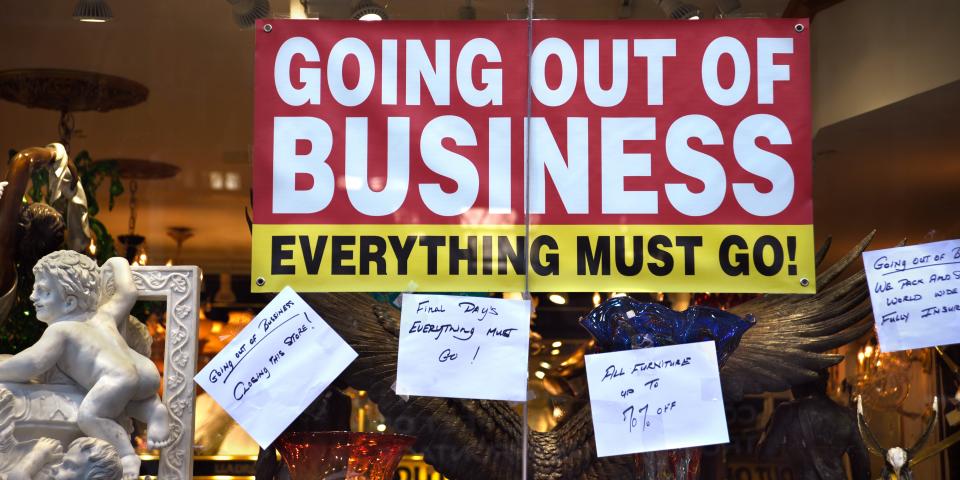The booming private credit market has delayed a recession, but the US is still at risk of a sharp downturn, chief strategist says

-
The $1.7 trillion private credit market has delayed a US recession, according to Tony Dwyer, Canaccord Genuity chief market strategist.
-
But Dwyer believes a recession is still on the table amid an ongoing manufacturing downturn.
-
“I think it’s going to come from a weaker employment picture,” he said.
An economic recession has been delayed, but not averted amid ongoing weakness in the manufacturing sector, according to Cannacord Genuity chief market strategist Tony Dwyer.
Dwyer told CNBC on Friday that while he expects stocks to perform well this year if and when the Federal Reserve cuts interest rates, a recession is still on the table.
“It’s been choppy, it’s going to get choppy underneath the surface,” Dwyer said of the broader economy, sticking with his longer-term recession call.
Dwyer’s sticking by his recession call because the tell-tale signs of a recession are still present.
The yield curve remains inverted in spectacular fashion based on its duration and extent, money supply growth is still negative, and manufacturing activity continues to contract with Manufacturing PMI below the all-important 50 level for 15 months.
The only reason why a recession has yet to occur given all of the warning signs is because of the booming $1.7 trillion private credit market, according to Dwyer, which is now bigger than both the high-yield bond and leveraged loan markets.
“How have we not gone into a recession? Most people would think ‘well you have excess savings through pandemic, you had fiscal stimulus.’ But I really think it’s the private credit market that has help up companies that would have ordinarily not had access to capital. So the question becomes, does that just push out a recession? Or does that eliminate one or avert one and I think it pushes it out,” Dwyer explained.
The private credit market has soared over the past decade as investors reached for yield amid a prolonged period of near-zero interest rates, with less than $300 billion invested in private credit in 2009. That figure has since surged 555%, according to data from the Fed.
“There had to be a source of capital for companies to have access to money when you couldn’t get it anywhere else. And for the first time in history, we have private credit,” Dwyer said.
Going forward, Dwyer said a recession in the manufacturing sector and weak employment figures could be enough to derail the economy and spark a recession.
Another risk to the economy is inaccurate labor data. Dwyer said response rates to Fed surveys have plunged from 70% before the pandemic to just 27% today. This could be behind the recent trend of strong jobs reports that are often followed by sizable negative job revisions.
The risk is that if the Fed keeps monetary policy tight based on potentially inaccurate data, it could considerably slow down economic growth.
“We have widely incomplete data. The vast majority of the time in the last year it’s been negatively revised,” Dwyer said. “I think it’s going to come from a weaker employment picture. The longer that the Fed stays higher for longer, the steeper the debt cliff comes when it’s time to roll it over.”
Read the original article on Business Insider

